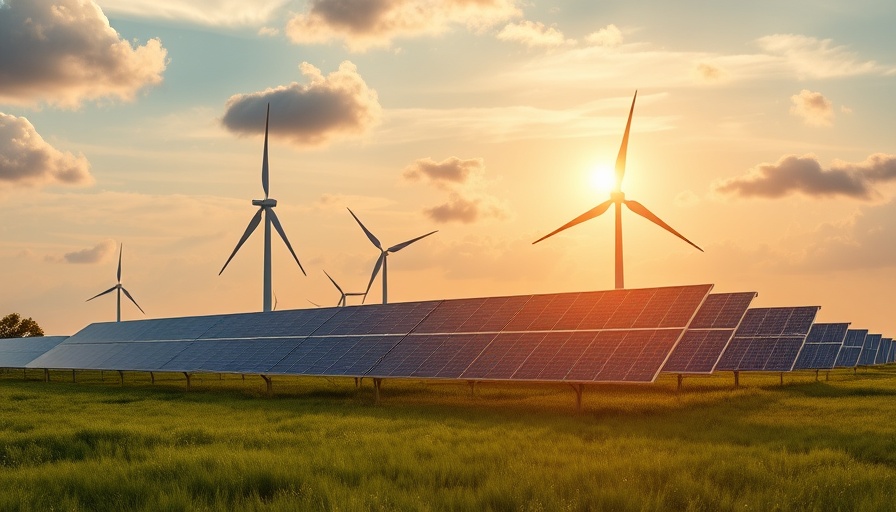
The Shifting Energy Landscape: Renewables Overtake Coal
In a significant milestone for global energy, solar and wind power have officially surpassed coal in electricity generation for the first time. This notable transition, reported by Ember, marks a crucial moment in the ongoing efforts to decrease our reliance on fossil fuels and combat climate change. As renewable energy's share climbed to 34.3% in the first half of 2025, coal's contribution fell to 33.1%, highlighting a pivotal shift in how we produce and consume electricity.
Challenges Ahead: Policy Changes Impact Growth
Despite this encouraging development, projections reveal a concerning slowdown in growth rates for renewables, primarily influenced by shifting policies in the U.S. and China. The International Energy Agency (IEA) recently revised its forecasts, projecting an increase of 4,600 gigawatts of renewable capacity by 2030, significantly lower than previous estimates. This reduction is attributed to factors such as the phase-out of tax incentives in the U.S. and a shift to competitive auction systems in China, which have altered the economics of renewable energy projects.
India's Bright Future in Renewables
While growth in major markets like the U.S. and China appears stunted, there's a silver lining. India is poised to emerge as the second-largest growth market for renewable energy, with expectations to substantially increase its capacity in the coming years. This shift is bolstered by various supportive policies, including a focus on rooftop solar installations and streamlined permitting processes.
Looking Forward: The Role of Solar Energy
Solar energy continues to dominate the growth narrative in the renewable sector, expected to account for about 80% of new capacity additions globally. This incredible momentum is crucial not just for meeting rising demand for energy but also for reducing greenhouse gas emissions, which have remained steady in recent months due to increased deployment of solar and wind resources.
This transition isn’t merely an environmental imperative; it’s also an opportunity for homeowners considering solar panel installations. As costs for solar technology decline and benefits become more pronounced, integrating renewable energy solutions at the household level can lead to significant savings on energy bills and contribute to a larger movement toward sustainability.
As we navigate these changing dynamics, it’s clear that the future of energy isn’t just about meeting demand—it’s a chance to reshape how we think about our energy sources and our individual impact on the planet.
 Add Row
Add Row  Add
Add 




Write A Comment